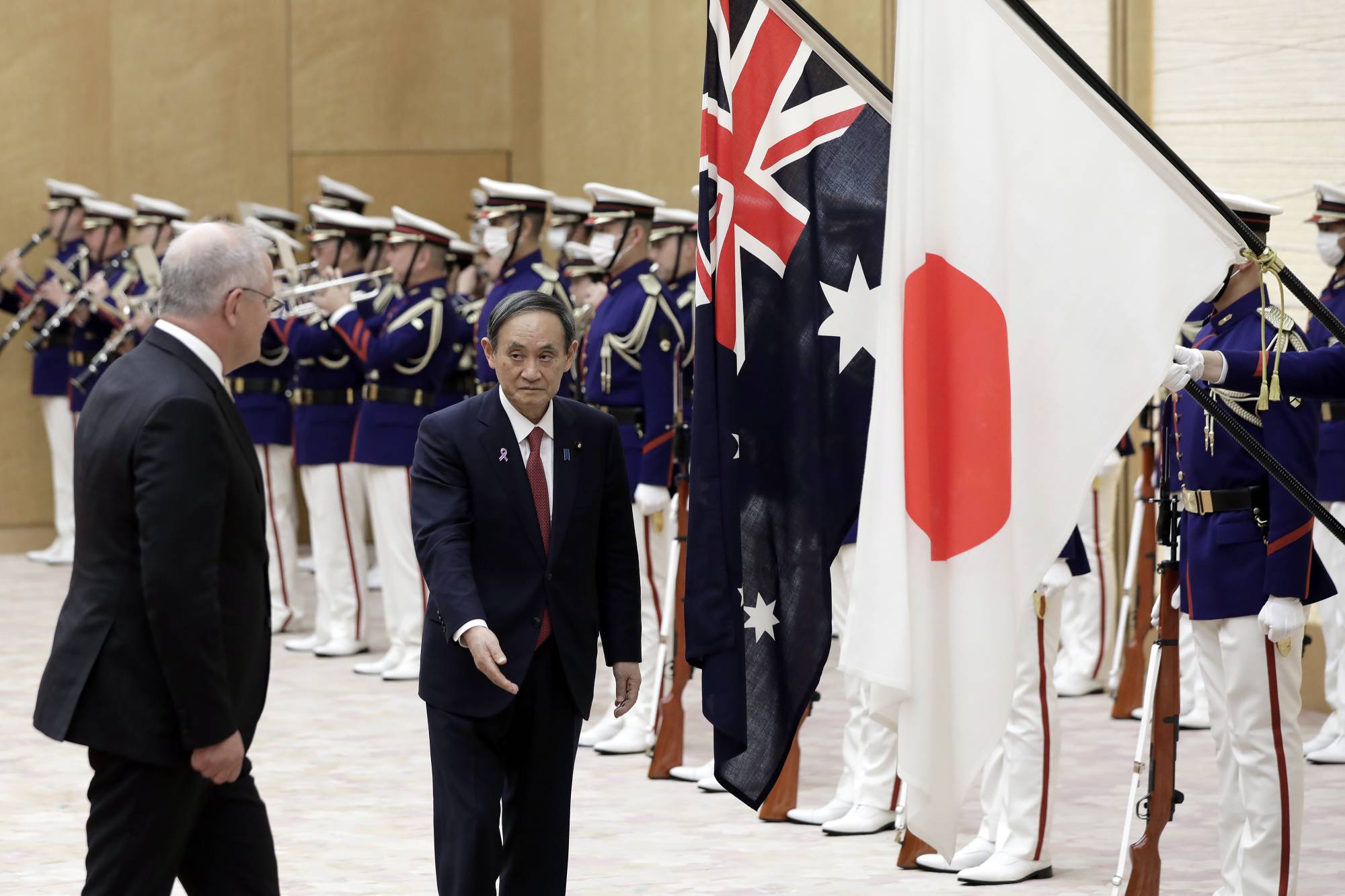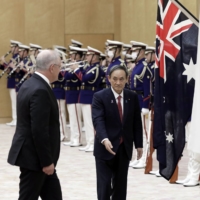China on Wednesday criticized Japanese and Australian leaders for making what it said were "groundless" accusations at their summit the previous day, urging them not to hurt its sovereign interests and interfere in its internal affairs.
On Tuesday, Prime Minister Yoshihide Suga and his Australian counterpart, Scott Morrison, voiced "serious concerns" about the situation in the South and East China seas, according to a joint statement released after their meeting in Tokyo.
"China expresses strong dissatisfaction and resolute opposition" to the Japan-Australia summit, Foreign Ministry spokesman Zhao Lijian told reporters.
Claiming sovereignty over almost the entire South China Sea, Beijing has rapidly built artificial islands with military infrastructure in the maritime area — a strategic waterway through which more than one-third of global trade passes.
China has also laid claim to the Japan-administered Senkaku Islands, a group of uninhabited islets in the East China Sea that it calls Diaoyu, by frequently sending coast guard ships nearby to assert control.
At their summit, meanwhile, Suga and Morrison agreed in principle on a status of forces pact that will step up bilateral security cooperation, formally called "Reciprocal Access Agreement," with the key U.S. allies trying to counter China's growing influence.
In its editorial, the Global Times, a tabloid affiliated with the Chinese Communist Party, lambasted Japan and Australia, saying they have formed a "quasi military alliance."
"Japan and Australia are developing their ties because of their strategic concerns over China. They work on the outdated military alliance and show a confrontational posture," the newspaper said, adding the two countries "have been used as U.S. tools."
"They should better not create confrontations with China under the instigation of the U.S.," it said. "They will surely pay a corresponding price if China's national interests are infringed upon and its security is threatened."




